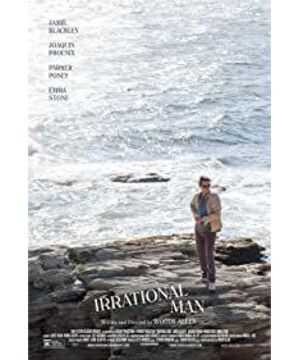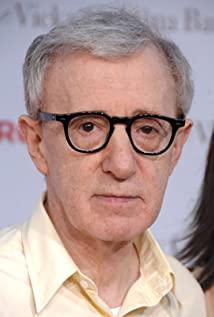1. About the similarities and differences in the outline of the story
"Crime and Punishment" not long after the beginning, through the drinking words of Father Sonia, a down-to-earth nine-rank civil servant, to tell the truth: poverty is the source of evil, and its The corresponding punishment is the pain caused by material deprivation and the torture of oneself inwardly. Since I don’t know Russian, I can’t study the actual meaning of poverty here. In ancient texts, poverty and poverty are two kinds of situations. Poverty is a lack of material, and poverty is a lack of spirit. And there is.
a. About Crime In
"Crime and Punishment", Raskolnikov is a down-to-earth college student whose values are slightly rudimentary but extremely malleable. Material embarrassment forced him to gradually form an absolute morality that transcends the shackles of the law. However, it then moved towards moral utilitarianism, the belief that some people who lived like lice (blood-sucking) could be sacrificed for the common good.
In "The Unreasonable Man", Abu is a decent university professor and a veteran in love affairs. The betrayal of his beloved wife has led to his spiritual impoverishment, and has also formed an absolute morality that transcends the law. In the end, he goes to the extreme, thinking that killing him Bad people can make the world a better place.
Therefore, from the aspect of crime, "Crime and Punishment" and "The Unreasonable Man" both believe that people should kill and kill people because of a lack of certain aspects, which leads them to moral utilitarianism, which can be described as two lives!
I remember a little story in the Bible. A woman was caught during adultery. People at that time said that she should be stoned to death according to the law of Moses. Jesus drew a small circle on the ground and ignored them. He was forced to come. It's a shocking sentence, any of you who is not guilty can stone her to death. So everyone was silent. Kant's absolute morality requires "act only in accordance with maxims that you can also become a universal law", which is a formal generalizable requirement of moral principles. Morality, or law, has its inevitability and binding force not from premise or experience, but from the universality of the code of conduct conforming to the law. In this premise, "I" is not higher than any "he".
b. In
"Crime and Punishment", not long after Raskolnikov killed the old lady, someone turned himself in and said that he killed the loan shark by himself. Although the detective suspected Raskolnikov, he In the face of the scapegoat who surrendered himself, he had to apologize for his unsubstantiated suspicion of Raskolnikov. After Ah Shuo killed the judge in "The Unreasonable Man", the police initially thought that the judge died of a sudden heart attack, and later had a scapegoat, so from the perspective of legal constraints, both could have been exempted from punishment. In "The Unreasonable," Woody Allen mocks the law's inability to punish, and that's it. In "Crime and Punishment", Raskolnikov's punishment was more of a torture of his own conscience, and it started when he began to have the idea of killing.
In "Crime and Punishment", Raskolnikov had no intention of killing anyone. Even if he was so embarrassed that he couldn't pay the rent, he would feel as uncomfortable as a mouse hiding when he walked in and out of the landlord's door. His innate view of good and evil made him think that people like old women who suck human blood like lice are hateful, and he vaguely believed that they should be punished. I didn't pull the trigger until I received the letter from home. From the family letter, he knew that his mother had mortgaged all his pensions, and that his beloved sister had borrowed money from a local old landlord to be a governess for him to go to school. He was later harassed and his reputation fell to a low point, although the landlord's wife later found out that she was washed for her. However, in the embarrassing situation, she had no choice but to marry a hypocrite who needed a "poor and honest" girl. Only now did Raskolnikov intensify his hatred of the old usury. The hearsay in the tavern made the vague theory of absolute morality in his mind take shape. He firmly believed that absolute morality existed above the law and distinguished between good and evil, although he wrongly placed himself above absolute morality. The existence of "Superman" thinks he has the right to get rid of the blood-sucking people who live like lice. He stole some pawns after killing people, but he didn't use them himself, and he didn't have any intention to use them to improve his living standard. He was more embarrassed. From Raskolnikov, we can deeply feel his compassion, his disgust for "evil" is rooted in his inability to do good! (Knock on the blackboard here!) After the murder, he fainted (blame) whenever he heard mention of the old loan shark and her sister. After a scapegoat appears, Jae-ho's sympathy for "that poor man" overwhelms his desire to prove his innocence (the detective says that although he suspects Ra's, but has no evidence, he still believes Ra's guilt, hope Largo surrendered). In the end, Raskolnikov's surrender was entirely because his Sonia's unbiased love by words and deeds (the reading of the Gospels, his love for the prisoners after his exile, and being loved and needed by the prisoners) defeated the reason he pretended to be. Madness, awe and love for life pulled him out of nihilism.
On the other hand, "The Unreasonable Man", starting from a few words about the judge overheard, Ah Jiao firmed up his desire for the judge, and the details of the murder are a little bit clearer. After the murder, there was not a single second of self-blame, and even "find the meaning of life" since then, and the sex life has also improved several levels. Ah Shuo's attitude towards life is indifferent. Not only to the judge, but even to that innocent scapegoat! Even when his little girlfriend came to question him, he had the idea to silence his little girlfriend. Ah Pu's punishment is that he was finally taken away by the cheap old man Woody Allen, unlike the scumbag man in "Match Point" who finally got away with it.
According to Kant's moral view, "No one should regard themselves and others as mere tools at any time, but should always regard themselves as ends", that is, the transcendental moral principle lies not only in the objectivity of behavior, but also in The behavior itself has no self-interested purpose. Ah Biao is obviously self-interested and has an obvious purpose: to find meaning in his life again. The focus of what Ah Biao does is the capital "I" ('I-ish'). And Raskolnikov's murder is somehow "I-less", 'I-less'.
c. About redemption
Tuo Ye is a devout Catholic, he knows that there is only the obligation of love but no right to punishment between people, so an eternal topic in Tuo Ye's works is how to use love to save the crazy/paranoid protagonist from nothingness. In "Crime and Punishment", Raskolnikov was moved by the kind Sonia, not only to surrender, but also to realize that Sonia's unbiased love for people made her so charming and finally followed and embraced Sonia. The underground man in "Notes from the Basement", half-drunk and half-awake, preached to a prostitute who had never met before, so that she could sober up from her current drunken life and realize that she once had a love that has not yet passed away. In the end, this prostitute In turn, he tried to use his kindness to pull the basement people out of the nihilistic resentment. Likewise, Ivan in "The Brothers Karamazov," the dark man of higher education, sees through the false and cowardly voices of human beings whose beliefs are nothing but mysterious miracles and authority in disguise. He believes in the logic of laying down the butcher’s knife and becoming a Buddha. He claims that if God created this world where good and evil coexist so that we can freely choose between good and evil and finally choose good, then this move is not only unreasonable to play with human will, but also more It is an evil that does not stop evil (a crime that does not stop crime)! In the end, "The Brothers Karamazov" ended unexpectedly, and Ivan stayed in the torture of conscience and fell ill. The end of the mad protagonist's "punishment" in Tuo Ye's works lies in the reawakening of the conscience, all the guilt, the sense of disillusionment with nothingness and meaning, and all the tortures tend to follow their actions and their conscience. Yu Jing, hope in Tuo Ye's works is produced at such a moment.
2. Shit stir stick
Both "The Unreasonable" and "Crime and Punishment" have people who are like shit sticks. It's the female professor in "The Unreasonable Man". She didn't think so when she threatened that Ah Bi was a murderer, and she never even thought that Ah Bi was a murderer. In "Crime and Punishment", the old landlord is a character who can succeed or fail. The old landlord first appeared in a letter from La's mother. La's sister worked as a tutor in the old landlord's house. She even confessed to her salty pig hands, and the landlord's wife's reputation for dragging her sister was ruined. However, after Sister La got engaged to the hypocrite, the old landlord gave her enough money to break off the engagement. In the end, the old landlord committed suicide again. Sjertekov in "The Brothers Karamazov" is also such a character. After the old Karamazov was killed, when the family was restless, Sjertekov claimed that he killed the old Karamazov, and then he Suicide, the testimony is indistinguishable. The old servant in "Notes from the Basement" is also such an existence. No matter what, he only cares about the salary he is owed, but he is also the one who makes the people in the basement think a lot and finally make a choice. The entry and appearance of the shit stick in Tuo Ye's works played a catalytic role in the development of the story. They did not participate in the main line of the story, but they played a decisive role in the choice of the protagonist. All decisions and changes in Tuo Ye's works are the protagonist's own! (Knock on the blackboard here!)
3. Some delusions of law and favor
In "The Unreasonable Man", Ah Pu's little girlfriend, after learning that Ah Pu is the murderer, questioned Ah Pu and forced Ah Pu to surrender, otherwise she would report it. There is a similar little story in the Analects of Confucius. Lord Ye told Confucius that there was an upright son in the countryside who sued his father for stealing sheep. Confucius said, our definition of uprightness here is that the father should hide for the son, and the son should be the father hide. (Ye Gong said to Confucius: "There is a straight bow in our party, his father robs the sheep, and his son proves it." Confucius said: "The straight man in my party is different: the father hides for the son, the son hides for the father, and straightness is in it. That's it.") Although many people criticized Confucius for this, I agree with Confucius here. In the face of great right and wrong, Confucianism advocates righteousness to kill relatives. But on this issue, Confucius obviously advocates family affection > law! Confucius obviously had his concerns. A society of mutual whistleblowing, although Faming Cathay could function normally, has lost the trust system it is most proud of. When the son saw his father stealing the sheep, he knew it was wrong. He could persuade his father to send the sheep back, and he could return the stolen sheep behind his back, instead of reporting and exposing his father!
(* Let’s write so much for the time being, the draft I wrote at the airport that day, I haven’t been in the mood to improve it when I get home, and I will have time to add it later*)
View more about Irrational Man reviews











